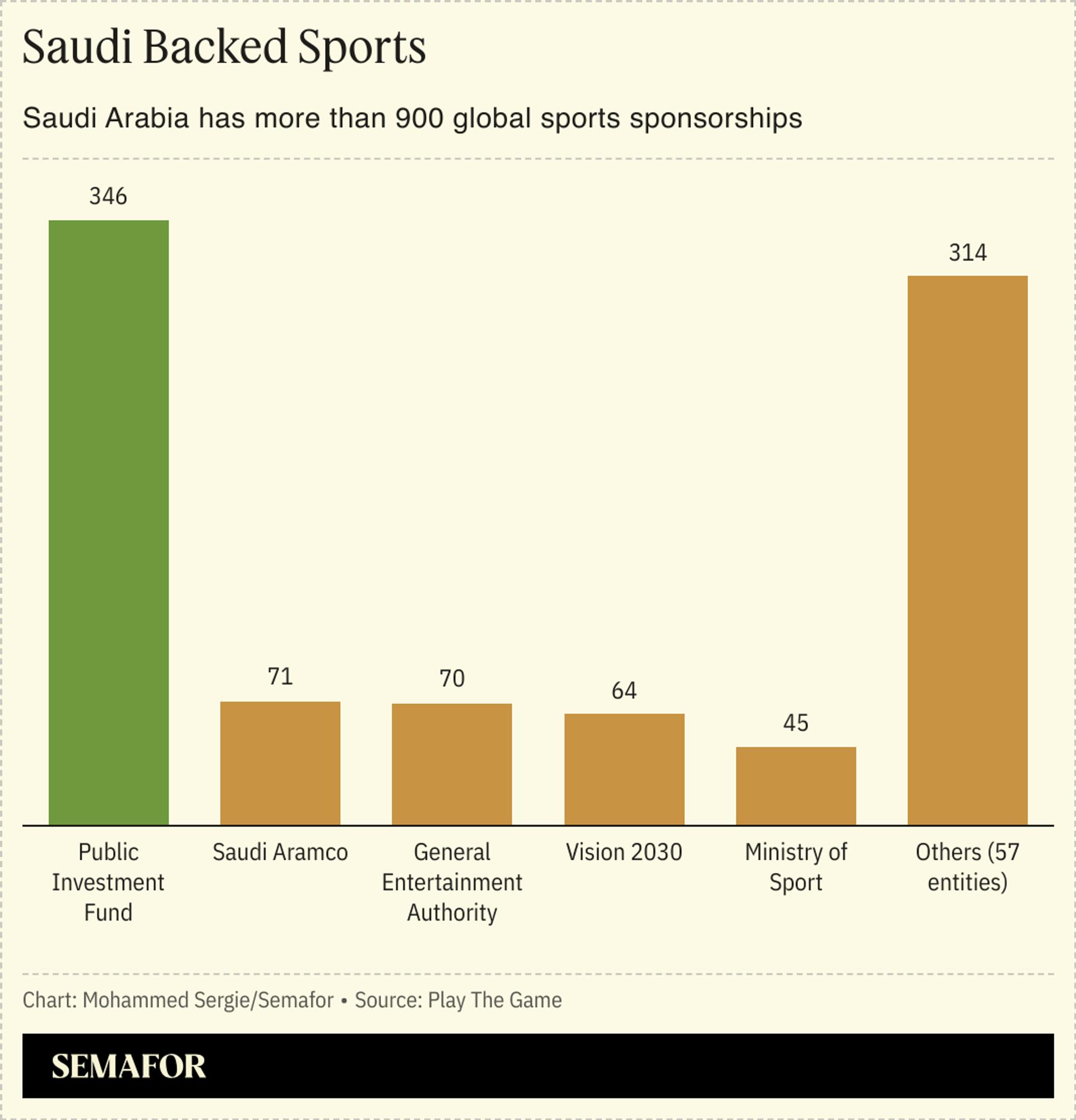The News
Saudi Arabia may soon welcome another global icon to its booming sports industry. Rafael Nadal — former world No. 1 and 22-time Grand Slam tennis champion — said he’s interested in bringing his tennis academy to the kingdom.
Already an ambassador for the Saudi Tennis Federation, Nadal made the comments during a visit to Jeddah where he sent fans into a frenzy attending the Next Gen ATP Finals.
Saudi Arabia sees sports as a pillar of its Vision 2030 economic diversification plan and is investing $2 billion annually in the sector. The sector is projected to contribute $16.5 billion annually, equivalent to 1.5% of its GDP, according to SURJ Sports Investment, a Public Investment Fund-backed company driving much of the expansion.
Saudi government entities and companies have over 900 sponsorship agreements in global sports, according to the Danish sports think tank Play the Game.

In this article:
Melissa Hancock’s view
Saudi Arabia’s sports industry is still nascent. Even with its projected growth, it will only be around one tenth the size of the UK’s, despite the kingdom’s economy being a third of Britain’s. Furthermore, its growth ambitions are facing hurdles. LIV Golf is mired in a battle with the PGA Tour — although that conflict appears to be settled — and there are repeated accusations of sportswashing, or using sports to cover up human rights abuses with big sports investments.
The kingdom’s biggest investment so far is its soccer league. It spent billions to attract stars — most notably Cristiano Ronaldo’s record-breaking $200-million-a-year contract — but this hasn’t translated into viewers, and some teams have struggled with poor performance.
Still, with valuations expected to triple to $22.4 billion by 2030, according to SURJ Sports, Saudi sports assets are discounted compared to the valuations of professional sports in developed economies. It’s not surprising that investors and sports stars are piling in.
Room for Disagreement
Crown Prince Mohammed bin Salman has dismissed accusations of sportswashing, saying that if sports contribute to the kingdom’s GDP, “we will continue doing sportswashing.” Many of the sporting world’s movers and shakers don’t give credence to the criticism either.
Saudi Arabia was confirmed as the host of the 2034 men’s soccer World Cup, the biggest sporting event globally. The kingdom has also hosted major events across boxing, tennis, and Formula 1. With Deloitte projecting an 8.7% annual growth in Saudi Arabia’s sports market by 2026 — far outpacing the global average of 3.3% — the country is an emerging powerhouse in the global sports industry.
